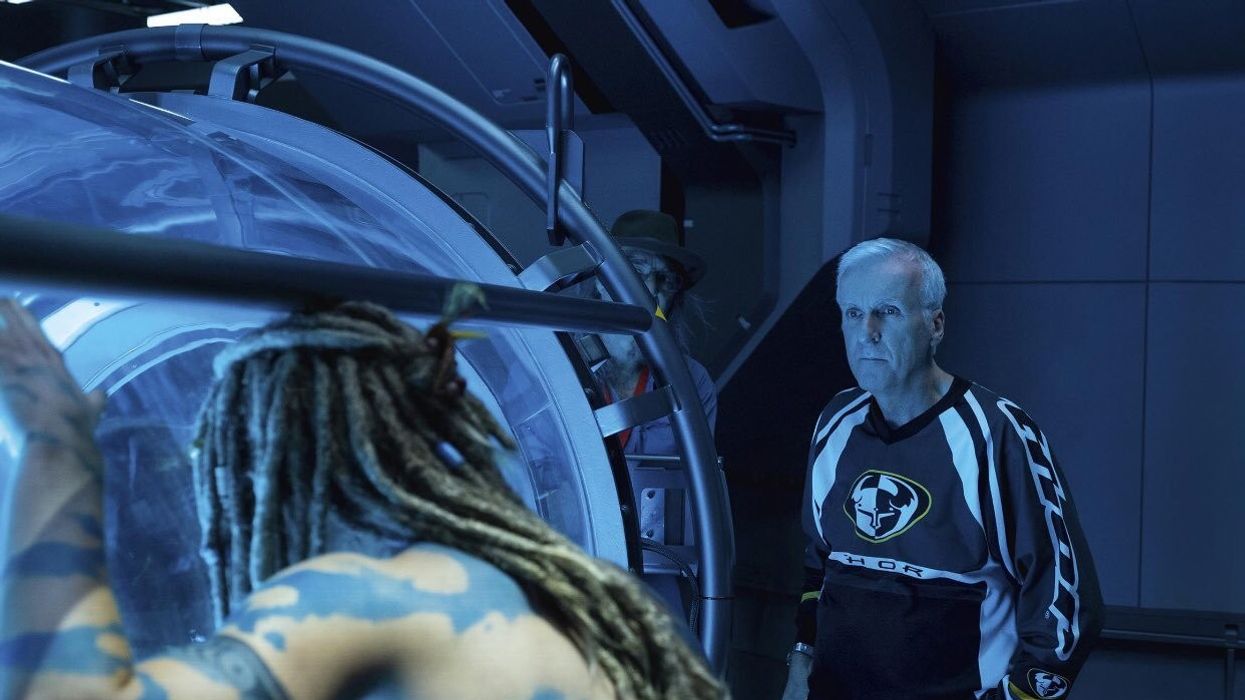Are Superheroes Acting Like "College" Kids? James Cameron Says Yes
Superheroes have a lot on their plates already, but Jim Cameron wants them to be more responsible partners and parents.

James Cameron, the director ofAvatar: The Way of Water, joins the ranks of Martin Scorsese, Francis Ford Coppola, Denis Villeneuve, and Ridley Scott as directors who have something to say about the superhero genre.
The Academy Award-winning director is currently making his rounds on the press tour for his long-awaited sequel to 2009’s Avatar, which is the highest-grossing film of all time. With three sequels to the film already waiting in the wings (set to star Sam Worthington and Zoe Saldaña reprising their roles as Jake and Neytiri), Cameron is ready to show off his big-budget franchise.
The Avatar franchise faces some competition with other massive blockbusters, mainly the dominance of superhero movies from the Marvel Cinematic Universe and the DC Extended Universe, which have created a fan following that continues to grow as they experiment within the confines of the genre.
Superhero films in general have faced a lot of criticism for many filmmakers over the years, but Cameron has a very specific criticism of the two cinematic universes.

James Cameron on the Superhero Genre
During his interview with the New York Times,Cameron weighed in on the superhero film franchise debate, giving a slight dig at how the genre handles character development.
Since Avatar: The Way of Water focuses on how Jake and Neytiri have grown with their family, which now includes several children, Cameron finds it confounding how characters in superhero films, especially those who are parents, could act in dangerous ways without considering their lives or how it affects the lives of their children.
In his interview, Cameron says:
“When I look at these big, spectacular films—I’m looking at you, Marvel and DC—it doesn’t matter how old the characters are, they all act like they’re in college. They have relationships, but they really don’t. They never hang up their spurs because of their kids. The things that really ground us and give us power, love, and a purpose? Those characters don’t experience it, and I think that’s not the way to make movies.”
How Can Marvel and DC Address Cameron’s Criticism?
The MCU has shown numerous characters undergoing growth and stepping away from the superhero lifestyle after developing relationships and having children, with prime examples including Hawkeye (Jeremy Renner) and Tony Stark (Robert Downey Jr.) in Avengers: Endgame, and Wanda’s (Elizabeth Olsen) and Vision’s (Paul Bettany) entire relationship.

Although these heroes are eventually dragged into the fight, it’s not a decision any of them make lightly. The goal of these heroes is to protect those they care about. It’s like an extravagant war movie that is removed from reality.
As for the DCEU, the universe hasn’t explored the complex relationships people have with their loved ones, but there are still meaningful relationships that give the DC superheroes their purposes.
One thing should be clear—having children is not a requirement for any person to grow into a fully developed and complex adult.
What makes a character complex is the stories with smaller, personal stakes and the tough, yet relatable decision they have to make to protect others.

Sure, Marvel and DC are not the greatest at showing off the complex character development of all of their characters (excluding WandaVisionand Lokifrom this conversation), but they offer decent character development that is engaging for audiences of all ages.
I don’t expect many movies from the superhero genre to explore the complex relationship and morality of characters like Cameron would like them to. Would it be nice? Sure, but I won’t hold my breath until it happens. And when it does happen, I am surprised and often moved to a tear or two.
What do you think about Cameron’s take? Let us know in the comments!
Source: The New York Times











